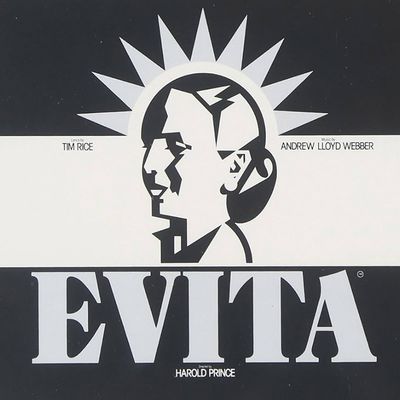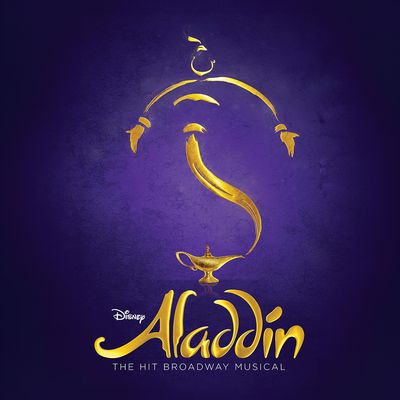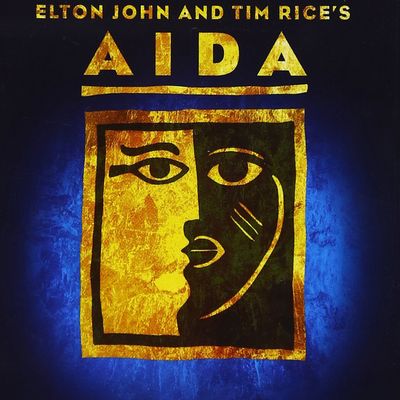Tim Rice was born in Amersham, Buckinghamshire, England, in 1944 and educated at Aldwickbury School and Lancing College. Although he began his professional life as a trainee solicitor, from an early age he was a pop music fanatic. While still an apprenticed clerk at the law firm Petit and Westlake, Tim approached the head of Arlington Books, Desmond Elliot, with the idea of writing a book about pop history. The idea didn’t impress Elliot, but the fact that Tim was also a budding song-writer did. Elliot knew someone in need of a collaborator: a young man called Andrew Lloyd Webber, who was about to go up to Magdalen College, Oxford, to read history, but who wanted to be a composer. At Elliot’s suggestion, on 21 April 1965 Tim wrote to Andrew, and a meeting was quickly arranged. The two men hit it off immediately, and, owing to Andrew’s love of American musical theatre, began to try to write a musical rather than pop singles.
His legal career stalling, Tim got a job as a trainee for the A&R department at EMI Records, under the supervision of Norrie Paramor. Meanwhile, Tim and Andrew had begun writing together, choosing, at Desmond Elliot’s suggestion, the Victorian philanthropist Dr. Barnardo as their subject; and one of Elliot’s clients, the novelist Leslie Thomas, was lined up to write the show’s book. Torn between two career paths, Andrew left Oxford early to devote himself full-time to writing with Tim, but despite their enthusiasm for their project – by now called The Likes of Us – the work failed to attract any interest from a producer.
While still hoping against hope that something would happen with The Likes Of Us, Tim and Andrew accepted an invitation from the choirmaster of Colet Court School, London, to write a musical entertainment for his boys’ (aged 8 – 11) end of term concert. Thus, on 1st March 1968, was the first public performance of a Rice/Lloyd Webber work – Joseph and the Amazing Technicolor Dreamcoat. Although originally envisioned as a 20-minute school show for the boys, a far cry from their West End musical theatrical ambitions, it unexpectedly received a review in the Sunday Times the following weekend. The paper’s music critic, Derek Jewell, whose son was at the school, had seen the show and loved it. Joseph was not, though, an overnight success – it would be 5 years before a fully staged production reached the West End – and Tim and Andrew were still very far from making a career out of musical theatre.
Meanwhile, Norrie Paramor left EMI to form his own company, the Norrie Paramor Organisation, and Tim went with him as his personal assistant. For his part, Andrew had approached entrepreneur Sefton Myers with the idea of starting a pop museum. Myers and his business partner David Land were not interested in the idea, but they were excited by the recording of Joseph And The Amazing Technicolor Dreamcoat which had accompanied the proposal. This resulted in Myers and Land giving Tim and Andrew a three-year management contract. Tim relinquished his job with Norrie Paramor so that he and Andrew could concentrate all their attention on their music careers. After rejecting ideas based on King Richard the Lionheart and the Old Testament figure King Saul – ideas to which Tim would one day return with other composers – the duo turned to the New Testament for inspiration. Tim had always wanted to write something about Judas Iscariot and Pontius Pilate, and out of this desire was born Jesus Christ Superstar. No theatre producer thought the idea commercial, so instead a concept album was recorded through MCA records, at Olympic Studios, London, in 1970. Freed from staging concerns, and featuring the talents of Ian Gillan, Murray Head, Yvonne Elliman and The Grease Band, the result was a true rock opera. The album was first a hit in the USA, becoming the best-selling album of 1971, but was soon an international success, while the single “Superstar” also became a world-wide hit. At last, theatre productions sprang up, firstly on Broadway, and latterly in the West End, where it ran for a record-breaking 8 years at the Palace Theatre.
Initially, Tim and Andrew considered following up Jesus Christ Superstar with a show about P.G. Wodehouse’s famous butler Jeeves. They began work on it but Tim felt unable to write lyrics as funny as the prose of Wodehouse, and reluctantly withdrew from the project. Unsure what his next subject might be, Tim stumbled across one while running late for a dinner party. He had heard part of a programme on his car radio about Eva Peron, the wife of the former President of Argentina, Juan Peron, and became convinced her story would make an exciting musical. In 1975, while Andrew was staging Jeeves with Alan Ayckbourn, Tim traveled to Argentina to research Eva Peron’s story and the nation’s politics. Jeeves was not the success Andrew had hoped it would be, and he returned to work with Tim on what would become their third major collaboration, Evita. As with Jesus Christ Superstar, a concept album of was recorded prior to any stage production, which produced the show’s iconic anthem and UK number 1 hit “Don’t Cry For Me Argentina”. Evita was first staged in London’s West End 1978, and on Broadway a year later, where it was the first British musical to win the Tony award for Best Musical.
By now Tim and Andrew wished to pursue different projects. Andrew’s next venture, Cats, was based on the poetry of T.S. Eliot and did not require a lyricist, so Tim began a new work with Stephen Oliver, a distinguished composer of classical opera and regular collaborator with the Royal Shakespeare Company. Their musical, the 1983 comic romp Blondel, was based on the legend of Blondel, the medieval minstrel whose quest to find the missing King Richard the Lionheart took him all round Europe. Despite a sophisticated score and witty lyrics, it ran for less than a year in London and was a commercial failure.
In 1981 Tim Rice met with Benny Andersson and Bjorn Ulvaeus from the pop group ABBA to discuss ideas for a musical. Andersson and Ulvaeus wanted to branch out from pop and tackle a theatre project and were intrigued by Tim’s interest in chess Grandmaster Bobby Fisher and Cold War politics. The trio decided to collaborate on what would become Chess. As with Tim’s previous musicals with Andrew Lloyd Webber, Chess was first released as a concept album in 1984 and became an international hit. Two of its singles were chart hits around the world. “I Know Him So Well” was a UK number one for four weeks in February/March of 1985, while “One Night in Bangkok” topped the charts in Australia, West Germany, Belgium, Austria, Switzerland, South Africa, Denmark, Holland, Sweden and Israel. In France it became the fastest selling 12-inch single ever, and reached number 3 on the US charts. The Chess album itself reached number 10 in the UK, staying on the charts for 16 weeks. After a concert tour in 1985, Chess was staged in the West End in 1986. Other major productions included Australia in 1991, and a revised version in Sweden in 2002. It was however a notable failure on Broadway, where the heavily altered book attempted to keep up with the rapidly changing political climate of the time.
In 1991 the Disney organisation signed Tim as lyricist for their first animated movie based on original source material – a project then known as King of the Jungle. Asked which composer he would like to work alongside, Tim suggested Elton John, and so a partnership began that would lead to a huge international hit album and film – the latter eventually renamed The Lion King. At the same time, Disney were halfway through another full-length animated movie, Aladdin, when its lyricist, Howard Ashman, tragically died. With several songs still to complete, Tim stepped into the breach and completed the score alongside Alan Menken, who had composed the multi-award-winning music for Beauty and the Beast and The Little Mermaid. Tim and Alan’s song “A Whole New World” won an Oscar in 1992, while the release of The Lion King in 1994 produced two more hit songs, “Circle Of Life” and “Can You Feel The Love Tonight”. The latter won an Oscar in 1995.
Tim was asked to collaborate with Alan Menken again in 1994 to provide additional songs for the theatrical production of Beauty And The Beast. Three years later, Tim and Alan worked on an entirely new project, an oratorio originally conceived to celebrate the 3000th anniversary of the founding of Jerusalem. King David was staged as a limited-run concert at Disney’s newly refurbished New Amsterdam Theatre on Broadway in May of 1997. Older works were also being reimagined and revived: in 1996, Evita was made into a major feature film directed by Alan Parker and starring Madonna. Tim and Andrew Lloyd Webber wrote a new song for the film, “You Must Love Me”, which won the Oscar for Best Original Song, Tim’s third.
Tim and Elton teamed up again in 1996 when Disney asked them to do an original stage musical based on Verdi’s opera Aida. After out-of-town try-outs in Atlanta and Chicago, it was staged on Broadway in March of 2000 and ran for over 1,800 performances, winning four Tonys along the way, including best score for Tim and Elton. The year 2000 also saw the release of Dreamworks’ film The Road To Eldorado which included 5 songs by Tim and Elton. A companion album sung by Elton was also released, featuring the film songs and five that never made it into the final cut. The El Dorado song “Someday Out Of The Blue” was a substantial US hit.
Tim’s work had not been confined to the US. In 1986 he was reunited with his former collaborator Andrew Lloyd Webber, when they were commissioned by Prince Edward to write a piece for HM the Queen’s 60th birthday. Called Cricket, the show was a comedy about players of Tim’s favourite sport, and was performed at Windsor Castle. Tim also turned his hand to producing, with the West End revival of Anything Goes in 1989. That same year Tim translated the hit French musical Starmania into its English format Tycoon. The album produced the Europe-wide hit single “The World Is Stone”, sung by Cyndi Lauper. In 1996 he teamed up with pop composer John Farrar on a musical for Cliff Richard, based on Emily Bronte’s Wuthering Heights. An album of songs from the show featuring Cliff and Olivia Newton-John was released and a stadium touring production of Heathcliff played throughout the UK.. And at last, in 2005, he saw the first public performance of The Likes of Us, the very first piece he and Andrew Lloyd Webber ever wrote together, featuring Stephen Fry as the narrator at Andrew’s Sydmonton festival.
Thirteen years after Aida, Tim returned to the West End with a new show and a new collaborator, Stuart Brayson. They had first met over 20 years earlier, when Stuart stopped Tim in the street and pressed a cassette of his songs into his hand. Impressed by what he heard, Tim stayed in touch and eventually the opportunity arose to work together on a new musical. From Here to Eternity was based on the 1953 James Jones novel (which also became an Oscar-winning film) and opened at the Shaftesbury Theatre in October 2013. Although only running in London for 6 months, it went on to have successful productions in North America.
In 2017, Tim was once more working with Disney, this time on the live action remake of Beauty and the Beast, starring Dan Stevens and Emma Watson. Teamed again with Alan Menken, he wrote three new songs for the film, which went on to become the highest-grossing live action musical of all time. Later that year, NBC produced a live staging of Jesus Christ Superstar, starring John Legend, Sarah Bareilles, Brandon Victor Dixon and Alice Cooper. Broadcast on Easter Sunday, it was a massive critical and commercial success, becoming the most successful live TV musical to date with 9.6m viewers tuning in. The broadcast eventually won Tim and Andrew their first Emmys (as a producer) which meant that they became EGOTs.
In addition to the above mentioned musicals and feature films, Tim has contributed songs to soundtracks, such as “All Time High” for the Bond movie Octopussy, and stand-alone singles, such as “A Winter’s Tale”, co-written with Mike Batt, which was a no.2 Christmas hit for David Essex in the UK. Tim has recorded songs under his name and pseudonyms and sung on several of his show concept albums. He played the part of the Narrator in a studio recording of Joseph And The Amazing Technicolor Dreamcoat (1979), and has acted in productions of Joseph (as Pharaoh) and Cricket (as Wittering). Tim has written the lyrics for solo songs for performers including Sarah Brightman, Michael Crawford, Sacha Distel, Placido Domingo, Elton John, Paul Jones, Freddie Mercury, Elaine Paige, Elvis Presley, Bobby Vee and Rick Wakeman, as well as for the groups 10cc and INXS.
Outside of the theatre, in 1981, Tim launched a publishing house with Colin Webb and Michael Parkinson named Pavilion Books, and for many years co-authored (with his brother, Jo, Paul Gambaccini and Mike Read) the hugely successful Guinness series of books on the UK record charts. His passion for popular music has led to him appearing on many radio and quiz shows, and won him the title “Rock Brain of the Universe” in 1985. On 2 February 2009, he took part in the 50 Winters Later Commemorative Concert in Clear Lake, Iowa, in remembrance of the 50th anniversary of the plane crash there which took the lives of Buddy Holly, Ritchie Valens and J.P. Richardson (The Big Bopper). Tim regularly appears on current affairs and quiz shows, including Countdown, Just A Minute (44 appearances), Breakfast With Frost and Mastermind.
Tim has served on numerous committees for music and sport, including chair to the government’s Foundation For The Sports And The Arts in 1991. He founded his own cricket team, Heartaches CC, in 1973 and is editor of its annual, privately published reference book “The Heartaches Cricketer’s Almanack”. Tim is a long-standing member of cricket charity The Lord’s Taverners and served as president of MCC from October 2002-2003.
Oh, What A Circus, Tim’s autobiography covering his life up until the opening of Evita, was published in England in 1999. Tim was profiled on the South Bank Show in November of 1993 and was inducted into the Songwriters Hall of Fame in 1999. During the Broadway run of the Jesus Christ Superstar revival in 2000, he had a total of four shows playing simultaneously on the Great White Way. This record was equalled in Japan, in December 2003 when Aida joined existing productions of Beauty and the Beast, Aida, and two productions of The Lion King. In recognition of his work in film and theatre, Tim was inducted as a Disney Legend in March 2002. On 20th November 2008, he received a star on the Hollywood Walk Of Fame. Tim was knighted by HRH Queen Elizabeth II in 1994.








